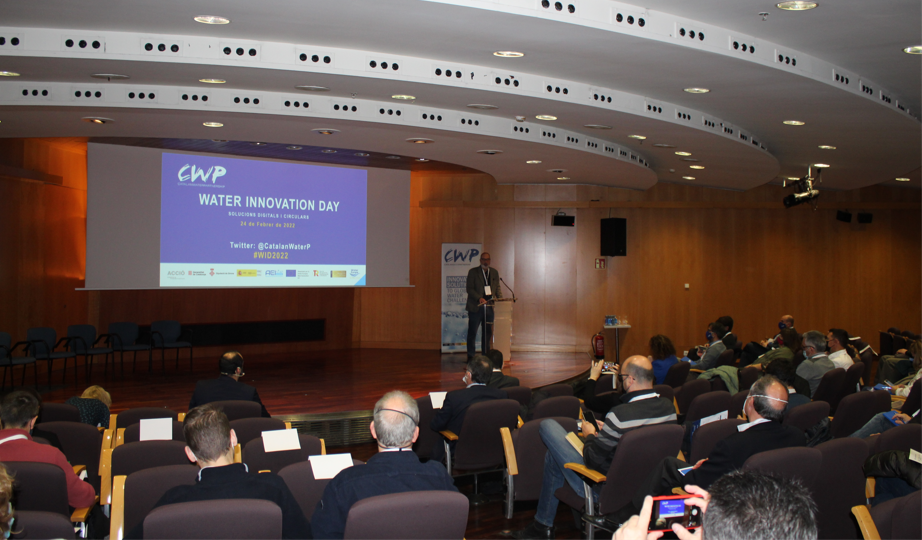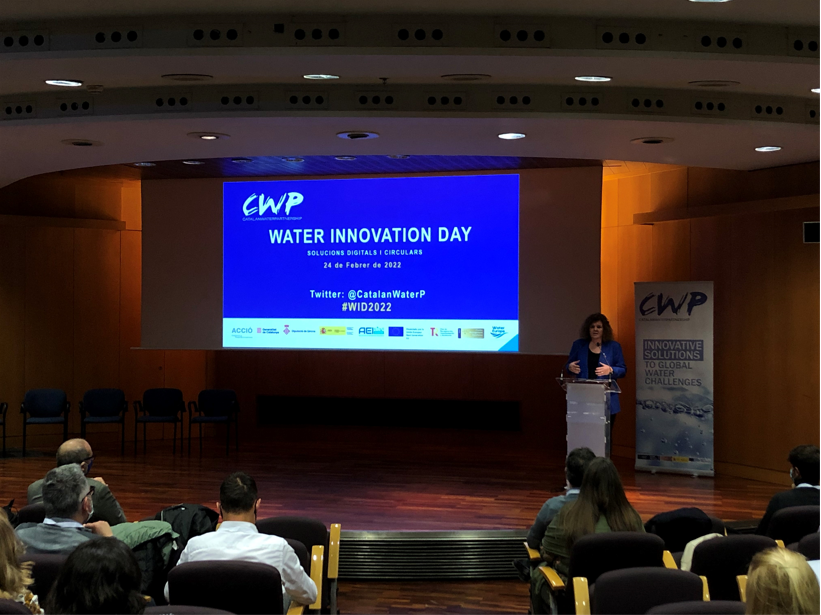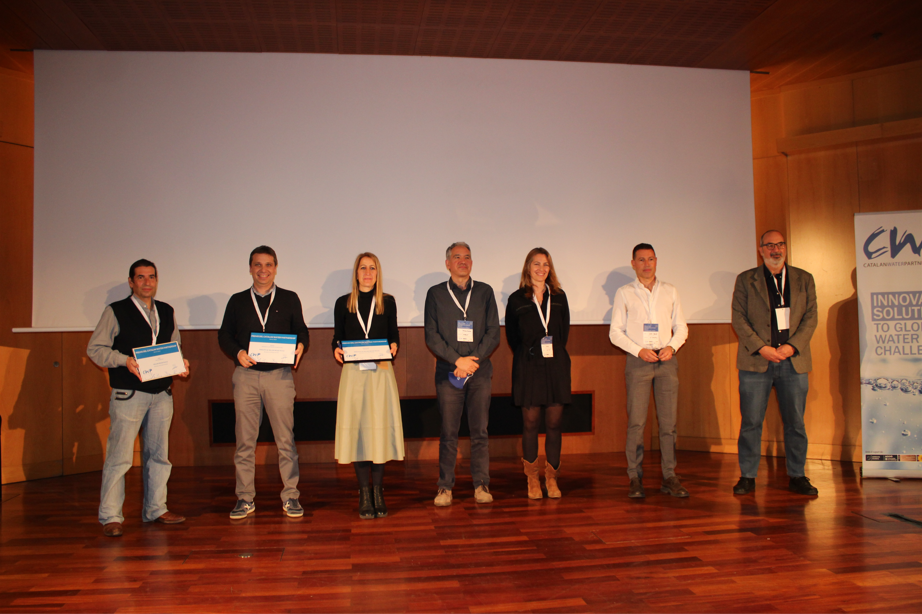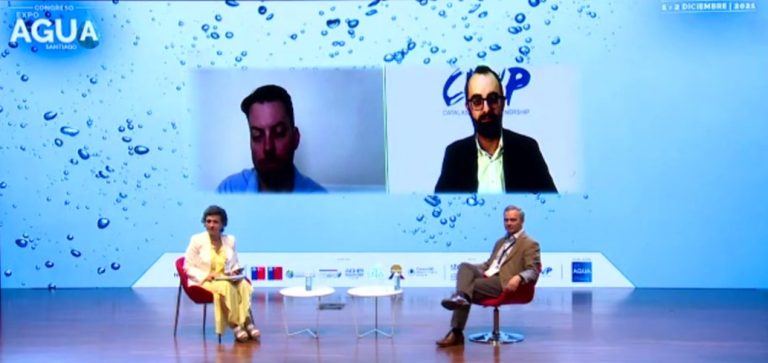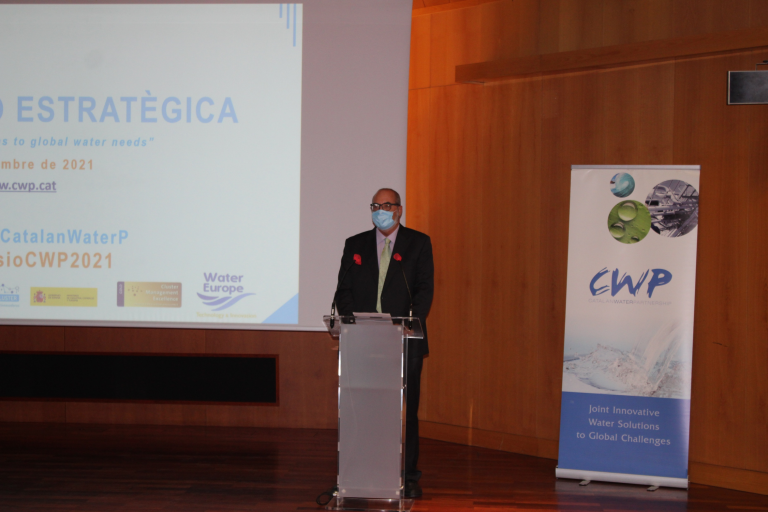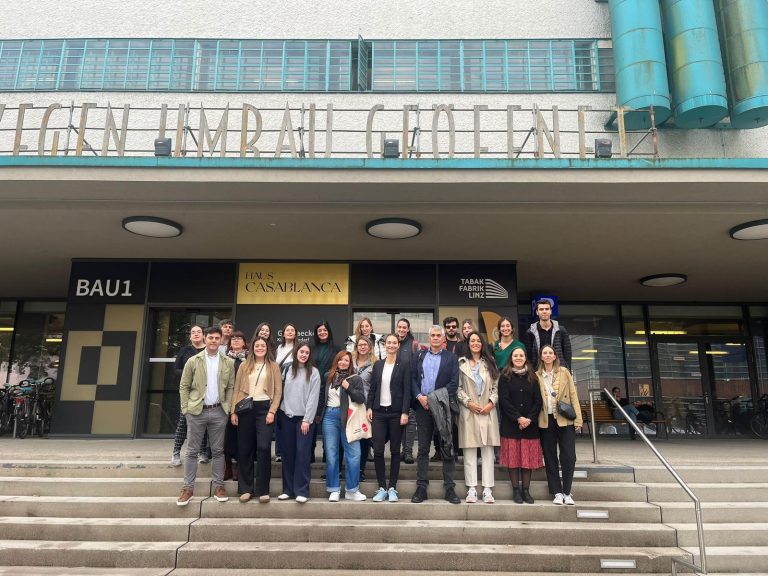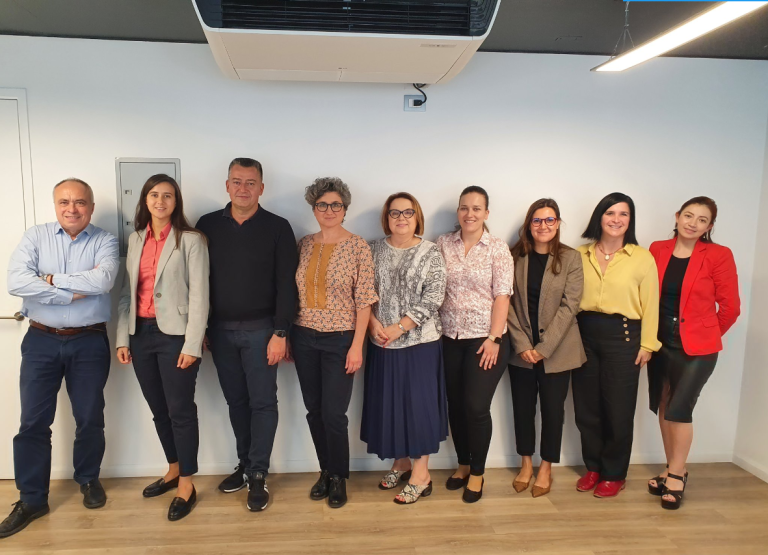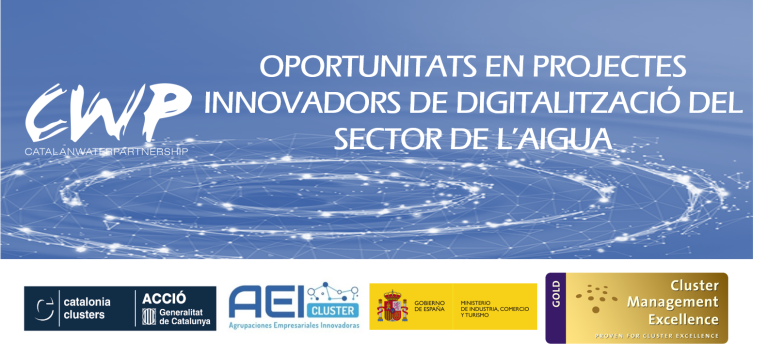INNOVATIVE TECHNOLOGIES TO TACKLE DROUGHT AT THE WATER INNOVATION DAY
On 24th February, the Catalan Water Partnership (CWP), Catalonia’s water cluster, held the Water Innovation Day- Digital and Circular Solutions-, a day focused on promoting knowledge transfer around the most relevant technological innovations and R&D projects for the sustainable use of water in Catalonia, which brought together almost 200 professionals from the water sector, and in which companies, universities and associated research centers presented innovation, R&D and digital transformation projects and initiatives, many of which are already underway in plants and pilots in Catalonia.
This conference coincides in a current context of severe drought that highlights the great importance of a good water resource management and in which technology and R&D, as well as digitization can contribute significantly to a more efficient use. The sector is no stranger to this situation, and many of the twenty or so projects presented today are focused on promoting water reuse or digitization to save on this resource. The session combined research projects with others already underway, which can show how the pilots and innovative solutions of a few years ago are already implemented in some plants in Catalonia and have allowed very significant water savings. In this sense, the Secretary of Climate Action of the Generalitat de Catalunya, Anna Barnades, highlighted in the inauguration the importance of continuing to invest in innovation in the water sector, since drought shows that it is a limiting factor to our development and asked the cluster to help to transfer this innovation to management. He also highlighted the investment role of the Catalan Water Agency in areas such as reuse and the creation of a R&D line for the water sector.
The president of the CWP, Jordi Cros, highlighted that the CWP has mobilized more than 1.5 M€ in the recent call for projects to promote the digitalization of the Ministry of Industry with more than 800,000 € of grants to companies, especially small and medium enterprises, ranking among the 10 clusters in Spain with the highest economic return. He also wanted to highlight that the Water Innovation Day is an event that allows to bring together business needs and those of the public administrations competent in water with the solutions of the companies and the technological and scientific offer of Catalonia. Xavier Amores, director of CWP emphasized that the possible arrival of funds for the digitalization of water, to implement new technologies, must be accompanied by more investments in R&D that allow to continue positioning as a technological leader in the water sector. In this sense, he emphasized that there are few concentrations of water companies and knowledge in the world like the one we have in Catalonia, being one of the areas with more returns in European projects, and that it is an example of the type of sectors of the future: environmental impact and technological leadership.
During the day there were two elevator pitches and two more presentations. In a first block there was the elevator pitch of R+D followed by a presentation and in a second block, a second elevator pitch of Digital and a last presentation.
First 9 entities of the CWP, each one of which was able to present its project. In this first block of elevator pitch of R+D, the participants were Leitat with Francesa Audino who presented the EFLUCOMP project, Eurecat with Carme Bosh who presented the IBATHWATER project, Aigües de Manresa with Sergi Grau Torrent who presented the FADICLUR project, UAB with Albert Guisasola Canudas who presented the VIVALDI project, Amphos 21 with Ester Vilanova who presented the AGUALEARN project, Cetaqua with Adriana Romero who presented the LIFE ENRICH project, Inloc Robotics with Raúl Alonso who presented the KTMS project, Beta-UVic with Lídia Paredes who presented the ACCELWATER project and ICRA–UDG with Joaquim Comas who presented the REUSEMP3 project.
Afterwards, a networking break was held where the companies were able to enjoy a time to relax.
Afterwards, Marcel Planellas, Esade professor and author of the book “Llibre vermell de la innovació” explained how to manage innovation in organizations.
Then the attendees were able to enjoy the second block ‘ elevator pitch where we were able to participate the following companies: Hydrens with Rosario Arnau who presented the project ” Analysis of fluid dynamics of processes using computational simulation techniques and experimental measurements”, Kurita Iberica with Víctor Venegas who presented the project FRACTA, FTR with Aleix Aulestia who presented the project Elvis Indy Water, ADASA with Miquel Pujades who presented the project DAM360, SENSOTEC with Jordi Guillaumes who presented “The importance of digital information in the measurement of head by ultrasonic methods”, ABB with Albert Blanco who presented “Condition-based maintenance and remote service by frequency converters in water pumping applications” Aqualia with Pilar Icaran who presented “Sustainable and digital management of the Lleida WWTP: Wastewater as a waste”, SPIN with Oriol Ginés who presented “Case of use of the digital toilet in the water sector” and Adiquímica with Núria Adroer who presented ADICONTROL, a tool for monitoring, controlling, automating, digitalising and integrating water treatment into the unit’s operational strategy”.
At the end of the day, Xavier Elizondo, manager of the Next Generation office at Acció empresa, explained to the participants the opportunities of the Next Generation funds for the water sector.
The event ended with the awarding of prizes to the three best R&D projects in the water sector this year. The first finalist was the Agualearn project led by Amphos21, Hyds and Aigües del Prat and financed by the Ministry of Industry, which aims to promote the use of AI and Machine Learning as an early warning tool to predict the presence of pollutants and identify the best way to exploit them. The finalist was also the Vivaldi project with the participation of the Universitat Autònoma de Barcelona, the BETA group of the University of Vic and LEITAT, funded by the EU’s H2020 call, which is developing an innovative, sustainable and cost-effective biotechnological solution to convert waste gas emissions from bio-based industries into CO2-based chemical products. Finally, the winner as the best R&D project was KTMS from the company Inloc Robotics, a start-up in the water sector, which, with this project focused on the area of the black economy and which has received European support in the Galatea programme, in which the water cluster also participates, aims to reduce energy consumption in vehicles thanks to the use of advanced sensing and digitalisation technologies.
With the support of:

